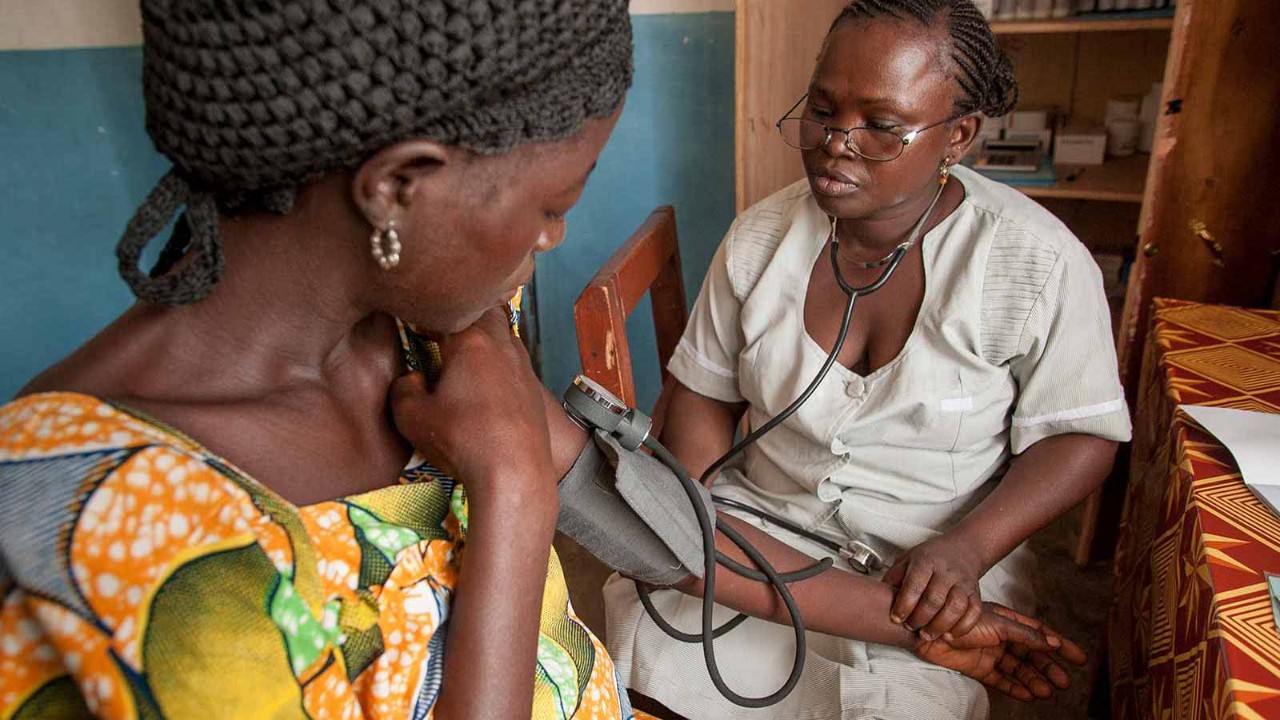
Domestic resource mobilisation remains challenging for many governments and local authorities across Africa. In 35 African countries, the tax-to-GDP ratio in 2020 was 14.84%, compared with 33.5% in OECD countries. It was a revenue performance made worse by the pandemic.
As a result of limited resources, African governments are unable to invest in programmes and infrastructure that are vital to the growth of their economies. The continent has a yearly financing gap of US$66bn for health, US$39bn for inclusive education, and up to US$170bn for infrastructure.
To boost domestic resource mobilisation, both tax policy and tax administration have to be addressed. Initiatives are needed to make it easier for taxpayers to comply, to curb tax avoidance and evasion, and to build transparent and accountable tax systems.
TADAT assessments are like health checks of tax administrations
One current initiative is the collaboration between the African Union Commission (AUC) and the African Tax Administration Forum to ensure that the AUC directs tax policy on the continent with inclusive input from the continent’s eight regional economic communities.
Critical goals
In 2015, the International Monetary Fund (IMF) created a diagnostic tool for tax administration. Known as TADAT (tax administration diagnostic assessment tool), it aims to provide a standardised means of assessing the health of key components of a country’s tax administration and gauging its level of maturity in the context of international good practice.
TADAT focuses on nine key performance outcome areas, covering the most critical tax administration functions, processes and institutions. It assesses countries on the basis of 32 high-level indicators through 55 measurement dimensions.
The critical goals of the nine performance outcome areas are:
- Integrity of the registered taxpayer base. All taxable individuals, businesses and organisations are included in a registration database that is complete, accurate and up to date.
- Effective risk management. Risks to revenue and tax administration operations are identified and managed effectively.
- Voluntary compliance. Taxpayers have the necessary information and support to voluntarily comply at reasonable cost to themselves.
- On-time filing of declarations.
- On-time payment of taxes.
- Accuracy of information reported in declarations. Taxpayers report accurate and complete information in their tax declarations.
- Adequacy of dispute resolution processes. The tax dispute resolution process is fair and independent, accessible to taxpayers, and effectively resolves disputes promptly.
- Efficient revenue management. Tax revenue collections are fully accounted for, monitored against expectations, and analysed to inform government revenue forecasting.
- Accountability and transparency. Tax administrations are transparent in the conduct of their activities and accountable to the government and community.
To date, 118 TADAT assessments (including 22 at local authority level) have been undertaken worldwide by trained assessors. African countries in particular have embraced these assessments to inform their tax administration reform agenda at national and local levels.
As a playbook for improving tax systems, the tool has enabled African countries to enhance their operating procedures, roll out better customer services, introduce more effective risk strategies, boost taxpayer compliance, and become more accountable and transparent to citizens.
Key lessons
From my own prior involvement in TADAT assessments (see box) and leadership of three TADAT engagements this year – TADAT training in Zambia, and TADAT assessments of the Kampala Capital City Authority in Uganda and Nairobi City County in Kenya – I have learnt these key lessons:
Leadership from the TADAT secretariat is critical in ensuring the tool is used worldwide as intended. The secretariat has built a community with the experience, expertise and motivation to conduct professional assessments that impact domestic resource mobilisation in Africa.
The accounting and auditing features of TADAT can be applied in many disciplines. TADAT assesses tax administration on the basis of the accounting systems used to collect and account for tax revenue. It also includes issues relating to statutory audits conducted by a country’s supreme audit body, ensuring that tax administrations apply IFRS Standards.
As a tax accountant, I have used TADAT to expand my own tax, accounting and leadership experience, enabling me to provide quality services to my clients. Also, the assessments have enabled me to interact with state officials and lead teams from diverse backgrounds, making me more responsible, organised and accountable to the goals I set in my professional and personal life.
TADAT assessments provide an opportunity for African governments at the central and local levels to improve their tax systems, which will generate more resources for closing the financing gap required to deliver services to their citizens and invest in their economies.
As a tax accountant, I continue to pay particular attention to business processes in tax administrations that uphold integrity and transparency, which is key to building trust between citizens and the tax authority. The social contract between tax administrations and citizens is that the tax revenue collected will be channelled directly into government coffers. Once there is high trust, taxpayers are mostly willing to pay their taxes.
More information
Visit the TADAT website
My TADAT journey
My own involvement in TADAT started in 2016 when Sierra Leone underwent its assessment. I had attended a presentation at a Commonwealth Association of Tax Administrators conference in Malaysia the previous year and become fascinated by the tool. At that time, I had been in working in tax administration for more than a decade and was deputy commissioner of tax at Sierra Leone’s tax authority.
At the conference I saw a tool encompassing all the areas that would enable me to improve my administrative expertise in running tax operations. Since 2016, I have been privileged to be a TADAT assessor, undertaking numerous assessments across Africa.
By the time we were preparing for the Sierra Leone TADAT assessment, I was TADAT-trained. This enabled me to raise awareness across the organisation – from senior management to my team in the tax department – and I trained all senior managers in the tool before the assessment. I went further in conducting a mock assessment, and since TADAT is evidenced-based, we had prepared our evidence for the various performance outcome areas before the official assessment had started.
Since then, I have been part of the TADAT family of over 3,000 individuals worldwide who conduct assessments at the country and subnational level. The TADAT secretariat has created a community that motivates you to create change in jurisdictions you assess, and I am delighted to be part of this work. I am grateful for my involvement in the TADAT community. Quite simply, it makes me a better tax accountant.

